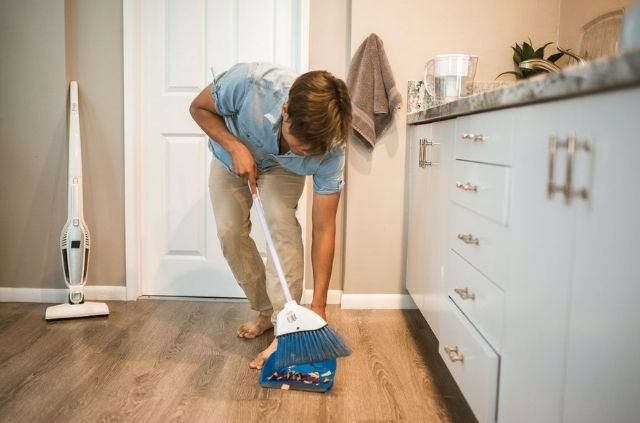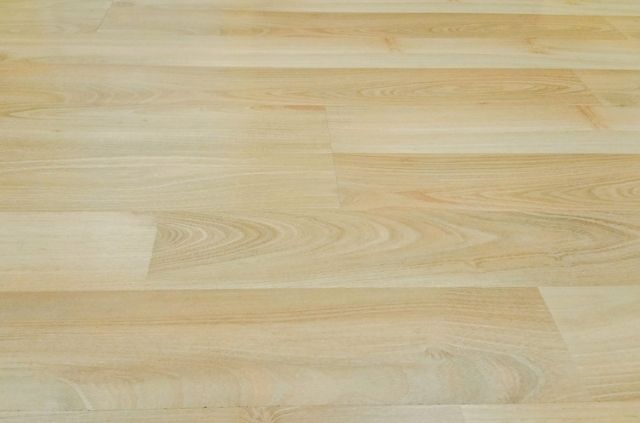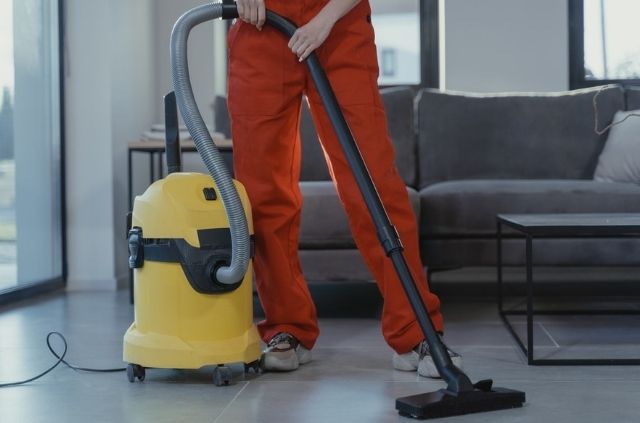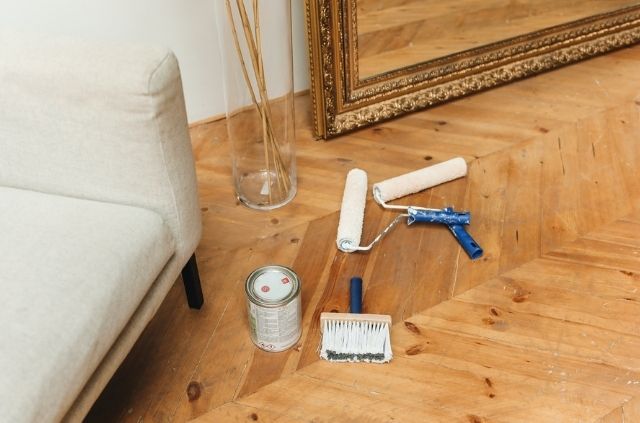Can Vinyl Flooring Get Wet?
Vinyl is a popular home building material when it comes to flooring. It’s durable, inexpensive and easy to clean. This brings us to the following question: can vinyl flooring get wet?
Yes, vinyl flooring can get wet. However, it should not stay wet for an extended period of time. This will not only create conditions for mold to grow, but it can change the shape of the vinyl and leave a slippery surface.
It doesn’t matter how sealed the vinyl was during the installation process. Smell spaces between the planks and sheets are large enough for minuscule amounts of water to seep in.
What Happens if Water Gets Under Vinyl Flooring?
Knowing the installation process can help you understand how water impacts vinyl. The boards are either glued down to the subfloor, or they are interlock with one another.
In either case, there will still be a small amount of air under the vinyl. This is completely normal and it can be found on most types of flooring.
1. Weakens Adhesive
However, problems can arise if water his been sitting on the surface for too long. When this occurs, any amount of moisture will weaken the adhesive (or glue) underneath connecting the vinyl to the subfloor.
This issue will happen gradually over time, so you may not notice it at first. When the adhesive beings to fail, the edges of the vinyl planks will begin to lift up and the surface will appear uneven.
2. Deteriorates Vinyl
Even though vinyl plank flooring can withstand a certain amount of water, you don’t want any liquid to be sitting on the surface for a long time. Doing so will only soften the material and it will deteriorate.
Peel and stick vinyl flooring will be the most vulnerable to water damage. This material is very thin (like a label) so when it makes contact with water regularly, it will peel up and lift off the surface.
3. Damages Subfloor
Water will eventually cause damage to the subfloor underneath the vinyl. This layer is traditionally made out of wood, so water will break down the materiel and make it soft over time.
Even if your vinyl plank flooring is sitting on concrete, damage can occur. Prolonged exposure to water and other liquids will lead to mold growth – which we will discuss in more detail below.
Can Mold Grow Under Vinyl Plank Flooring?
Even though vinyl plank flooring can be water resistant, it will not make your floors waterproof. When installed correctly, the boards will have very small spaces in between each plank.
Problems arise when liquids make there way through these holes. As water drips down into the subfloor, it will only become trapped underneath the vinyl boards.
This water will have no place to go and it will create an environment for mold to start growing. It will now be dark, damp, and no amount of sunlight will be able to penetrate through the floor.
It’s completely normal for even the best installed floors to have some cracks and grooves – so don’t go running to your contractor and ask for a refund. The best thing you can do is to stay ahead of the mold.
How to Prevent Mold Under Vinyl Floors
It’s important to prevent mold, now that you know what can happen when mold gets under vinyl flooring. You can keep your house mold free by following the steps listed below.
Clean Up Spills
One of the easiest ways to prevent the growth of mold is to clean up spills. This may seem obvious, but it’s critical to remove all of the water from the surface, right when it happens.
As each minute passes, water will begin to seep through the vinyl boards down to the subfloor. Use paper towels, or a clean microfiber cloth that works best at absorbing water quickly.
Use Detergents
It also helps to clean your floors on a regular basis. You can do this by either using dedicated vinyl floor detergents, or vinegar. You might be surprised to learn that vinegar is great at killing mold.
Vinegar is much safer to use compared to bleach and even more effective. You can even use it on vinyl, tile, laminate, wood, and many other surfaces. So, make sure to get on a schedule to prevent mold growth.
Be Aware of Warning Signs
Even though it’s hard to see if mold is growing under vinyl floors, there are some warning signs to be aware of. One of the easiest ways is to look out for a musty smell that gets worse over time.
If you smell something rotten, it might not be the garbage. You should also pay attention to dark spots on the floor. If you clean a dark spot and it keeps coming back – mold may be the issue.
Check Problem Areas
Preventative maintenance is an essential step to keeping a functioning house. When it comes to preventing water damage, check for areas around the sink, dishwasher and refrigerator.
All of these appliances use water, which means you will need to maintain them regularly. This will prevent any leaks from developing on your vinyl floors and keep mold away.
What Happens When Vinyl Flooring Stays Wet?
If all else fails you will need to find a more extreme measure for mold removal. If your vinyl floors stay wet you will need to remove the floorboards, in order to scrap up and remove mold on the subfloor.
This is a very time intensive process and the vinyl will need to be completely replaced after. It’s also a project that’s best left to a professional, due to the dangerous conditions mold can bring.
Licensed mold removal specialists will have heavy duty equipment needed to extract mold spores from entering the air. That way you won’t have to worry about the spread of mold in other areas of your house.
Search Terms
- Can vinyl flooring get wet?
- What happens if water gets under vinyl flooring?
- Can mold grow under vinyl plank flooring?







